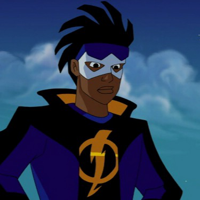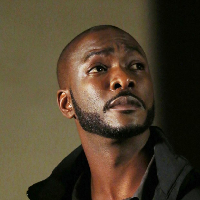{{ชื่อ}} ประเภทบุคลิกภาพ MBTI
บุคลิกภาพ
"Peter Parker / Spider-Man ประเภทบุคลิกภาพประเภทใด Peter Parker / Spider-Man เป็นประเภทบุคลิกภาพ ENFP ใน mbti, 6w7 - so/sx - 629 ใน Enneagram, SLUAI ใน Big 5, IEE ใน Socionics"
[1/4] During all my time on this website I’ve never seen as many different opinions and perspectives on any fictional character as I did with the MCU’s version of the iconic webslinger and wall-crawler, which is actually rather great to see because this means this version of Spider-Man is definitely a solid fan-favorite across the entire internet. Ironically this is my favorite live-action take on Spidey as well, which is why I was somewhat disappointed that many perspectives on here, even though valid, don’t quite describe the true essence of this specific Peter Parker. Thus I decided to leave my own insights and analysis for MCU’s Spider-Man and hopefully shine some light on some of the misconceptions and misinterpretations I’ve seen on this page so far. _________________________________________________________________________________ 𝗗𝗲𝗯𝘂𝗻𝗸𝗶𝗻𝗴 𝘁𝗵𝗲 𝗜𝗡𝗙𝗣 𝗦𝗲𝗹𝗳-𝗣𝗿𝗲𝘀𝗲𝗿𝘃𝗮𝘁𝗶𝗼𝗻 𝗘𝟲 𝗮𝗿𝗴𝘂𝗺𝗲𝗻𝘁 It’s no secret that Peter Parker’s Fi is a prominent and evident trait in many of the different versions in all of Marvel’s media, and that Stan Lee’s early visions of the character was that of an Fi dominant, someone driven primarily by his internal well of emotional rationale and judgment, as well as the whole Socionics Fi-driven notion of “With great power, comes great responsibility” (though I’d argue some of Stan Lee and Steve Ditko’s later runs characterized Peter as more of an INTP SX5, it goes back and forth in numerous continuities of the Earth-616 and ASM comics so it can kinda get confusing). However while the MCU’s Spider-Man retains many of his 616 counterpart’s traits and ideologies as well as being shy, reclusive and neurotic, doesn’t quite fit the mold of an INFP nor an SP6. MCU Peter is often seen as someone excitable and drawn to external stimuli, a mental restlessness which defines his desires to tinker with the conceptual opportunities of the external environment. This is less obvious in his first appearance which tries to steer him in a more Fi/judging function-oriented direction in his interactions with Tony Stark and the other Avengers “When you can do the things that I can, but you don’t, and then the bad things happen… they happen because of you.” (Peter to Tony Stark) “You’re wrong, you think you’re right. This makes you dangerous.” (Peter to Captain America) This direction is later contradicted by the new direction Jon Watts has taken with Spidey in Homecoming, where Peter’s entire perspective is put on display and how he perceived the events of Civil War. During his entire trip to Germany he was more concerned with paying attention and gawking at all the abstractions and novelties in the larger world of heroes, Avengers and vigilantes. He’s less concerned with how he’s internally affected by the events surrounding him, but more so tinkering and exploring all the objective opportunities. In his humorous recording of the trip, it becomes obvious he’s driven by opportunity and novelty. With MCU Spidey, his Ne is usually in the forefront and Fi tends to take a backseat. His actions throughout the movies indicate a perceiving function as the dominant, not a judging one. His Te is also way too high to be seen as the inferior, which would technically be a weakness that usually sticks out like a sore thumb. What does Peter do in almost every battle? He observes the objective reality and utilizes universal metrics, facts and frameworks to deconstruct objective patterns in the external world and make use of any sort of fallacies to gain the upper hand on his enemies. Mysterio manipulates him via realistic holo-tech and drones? He immediately adapts to an unpredictable strategy and makes use of his surroundings to make weapons out of rubble when he ran out of webs. Doctor Strange traps him in the Mirror Dimension? He almost instantly notices the architectural structure and metrics behind the Mirror Dimension and made use of universal facts of Archimedean Spirals and geometry to gain the upper hand on Strange (pretty based moment if I do say so myself hehe). There’s no way his Te would be a weakness or an inferior. This version of Peter Parker is too cognitively extroverted and externally-oriented in every way to be anything but ENFP in MBTI and EN(F) in Jung.
ชีวประวัติ
After getting bitten by a scientifically-altered spider, Peter Parker gained the ability to crawl on walls and sense nearby threats, along with enhanced strength and agility. When his uncle was killed by a criminal, he learned that With Great Power Comes Great Responsibility and vowed to use his abilities to protect others as the superhero Spider-Man... All of which has happened offscreen by the time we actually meet him. A few months later, Spider-Man was drafted into a conflict between the Avengers by Iron Man, gaining a new suit in the process. While seeking to prove that he's good enough to join the Avengers, Peter was able to take on a smaller threat on his own, proving his worth. However, Peter ultimately turned down the offer to become an Avenger, realizing that he can do more good in New York City, an area that the Avengers can't usually cover. But when an alien invasion threatens New York once again, Spider-Man is officially inducted into their ranks by Iron Man.
บุคลิกภาพ correlate

Thor Odinson

Dr. Stephen Strange "Doctor Strange"

Tony Stark "Iron Man"

Wanda Maximoff "Scarlet Witch"

Rocket Raccoon

Natasha Romanoff "Black Widow"

Michelle "MJ" Jones-Watson

Bruce Banner "Hulk"














